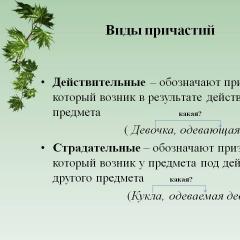Tip 1: How to explain the case of the child
In speech, you can with the help of a simple exercise. Make a proposal and make a scheduled error in it. For example: "On Sunday we will definitely go to visit your grandparents." Ask a child, what's wrong with this sentence? Usually, children find and correct obvious errors without difficulty. At such examples, it can be clearly shown that the cases make our speech connected, thanks to it, we can easily understand each other.
In Russian, there are only six major cases. Remember them helps familiar to many from childhood is a poem. It is quite unusual, but it is impossible to absorb the order of the case better.
Ivan (Name)
Gave birth (genitive)
Girl (Current)
Ordered (accusative)
Drag (cool)
Diaper (proposed)
The initial letter of each of the words of the poem corresponds to the first letter of the case. This is a peculiar mnemonic rule that contributes to memorization by expanding associative connections.
Another expression is based on the same, the memorization of which will also help to learn the order of the case:
Ivan (Name)
Rubil (genitive)
Firewood (Current)
Varvara (accusative)
Topila (cool)
Furnace (offered)
Knowing your child, you can come up with for him any other statement built on this principle.
Studying the case and the corresponding questions help auxiliary words and small tips.
The nominative case is responsible for questions "Who?" "what?" ("Masha", "Chair", "Horse").
PEITING PADEZH - No next to us "Who?", "What?" ("Masha", "Stool", "Horses").
Conductive case - give a toy "Who?", "What?" ("Masha", "Chaul", "Horses").
The accusative case - I see nearby, away "Who?", "What?" ("Masha", "Chair", "Horse").
Certificate case - doing (draw, compose) together "with whom?", "With what?" ("With Masha", "with a chair", "with a horse").
The proposed case - I suggest to talk "OK?", "What?" ("About Masha", "About Chaul", "About Horse").
In this case, in this case, pay attention to the child to the identity of the initial letters in the title of the case and auxiliary word: "Current - give", "accusatively - I see", "Create - Wash", "the proposed - I propose."
Tip 2: How to distinguish the genitive case of a noun from vinitive
Pade Russian language is a word category showing its syntactic role in the proposal. Schoolchildren memorize the names of the caps and their signs, that is, questions, but sometimes there are difficulties. For example, when you need to distinguish the genitive case from the vinitive.
You will need
- Knowledge in the Russian language in the school program, nouns in the vinema and parental case,
Instruction
In Russian, there are six cases: nominative, genitive, privacy, accusative, efficient, proposed. To determine the case of the noun use auxiliary words and questions. From this depends on the writing of the word ending. Very often confused by the pet (no: whom? What?) And the accusative (blame: who? What?) Pades, since questions about animated objects are given the same: "Who?".
Ask a question. If you doubt, ask a noun defining question: "No What?" (for a pet) and "I see what?" (for vinitive). If the word acquires the form of a nominative case, it means that in this case it is accusative. For example: fine fish (accusative case: I see what? Fish, it is impossible to say: there is no one? Fish).
If you need to determine the case to arrange the end, substitute instead of the word "cat" or any other, but necessarily the first decline. Depending on the end, determine the case. For example: Pride for teacher - accusative case, because, substituting the nouns of the word "Cat", we get: the pride behind the cat. The end of "y" poins at the accusative case. The end "and" to the genitive.
Analyze the relationship of words in phrases. The genitive case is, as a rule, the ratio of part and a whole (a glass of milk), belonging to something (sister's sweater), is used when compared (more beautiful than the queen). The accusatively use to transmit spatio-temporal relations (work week), the transition from the action for the subject (conducting the machine).
Use the same methods for unclear nouns. For example: Wear a coat (put on the cat - the accusative case), do without coffee (do without a cat - a genitive).
note
The accusative case denotes the full coverage of the object by action, a certain amount (drink milk), and the genitive case is the distribution of the action to a part of the object (drink milk).
Helpful advice
Inanimate noun in the vinegenic case does not change in contrast to the same nouns in the parental case: I saw the house (accusative), there were no homes in the district (PAZITIVE)
Sources:
- The page dedicated to the grammatical characteristics of the noun
"Ivan his gave birth to the girl ordered to drag a diaper" - the first letters of this literary failure to be ordered by the list of cases of the case. There are six types of cases: nominative, PABILITIVE, CUTTING, REQUIRED, CWORTING, PROPOSED. Each of them talks about the temporary state of a particular noun that can change in a case. It is easy to determine the view of the case of a noun, you should only figure out what the question is answered by each of the case.

Instruction
Paide nominative - Initial, determining the present sound of the word. Answers questions "Who?" or "What?". If the noun is inanimate, for example: window, house, book, bus, then it answers the question "What?", And if - an animated, for example, a girl, an elephant, mother, rita, then, respectively, answers the question "Who?" . This distribution on the bulliness of the subject will concern all cases, which is why each case has two questions. Example 1. A person (who?) Is an animated noun in the nominative case, the car (what?) - inanimate noun in the nominal case.


